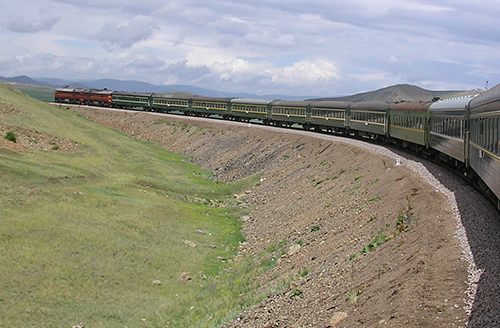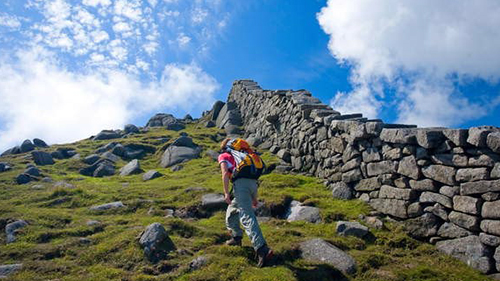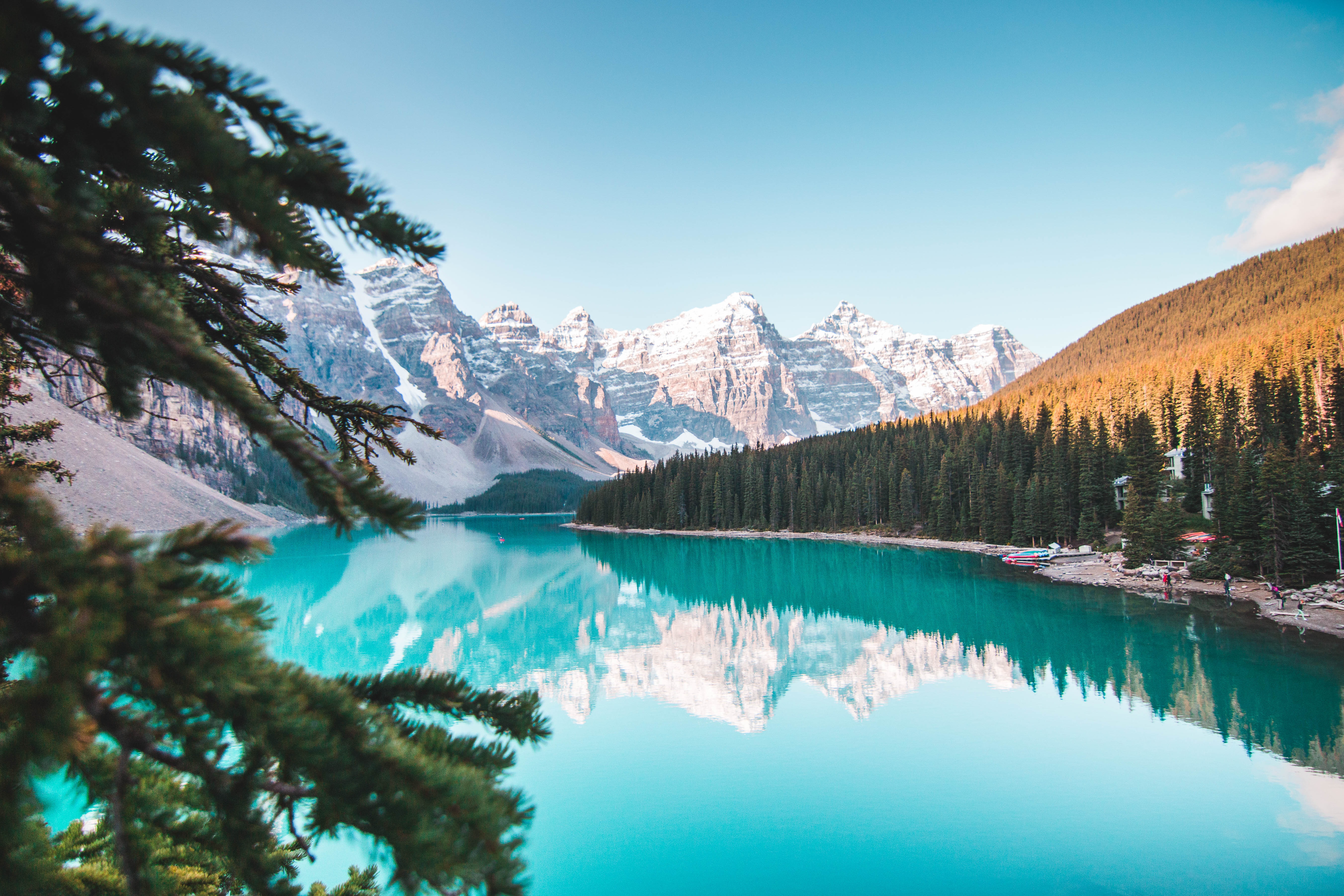Reading travel writing
 In 2010, Monisha Rajesh (pictured right) left London to travel India by train. A few years later, inspired by this journey, she packed her bags and set off with her fiancé Jem to travel the globe by rail. Their journey which covered 45,000 miles was a celebration of train travel and introduced them to some of the most extraordinary places and people in the world. Monisha discovered at the end of her journey that, ‘Trains would always be an open window into the soul of a country and its people’. It wasn’t always easy, the trains were variable in terms of comfort, safety and reliability but it was always surprising. In her best-selling account of the journey, ‘Around the World in 80 Trains’ (2019) Rajesh describes a journey that takes her through the vast expanses of Russia, Mongolia, Kazakhstan as well as to places often hidden from the traveller like North Korea. Journey’s end - the splendour of the Venice Simplon-Orient-Express which brought Monisha and Jem home to St Pancras station, London.
In 2010, Monisha Rajesh (pictured right) left London to travel India by train. A few years later, inspired by this journey, she packed her bags and set off with her fiancé Jem to travel the globe by rail. Their journey which covered 45,000 miles was a celebration of train travel and introduced them to some of the most extraordinary places and people in the world. Monisha discovered at the end of her journey that, ‘Trains would always be an open window into the soul of a country and its people’. It wasn’t always easy, the trains were variable in terms of comfort, safety and reliability but it was always surprising. In her best-selling account of the journey, ‘Around the World in 80 Trains’ (2019) Rajesh describes a journey that takes her through the vast expanses of Russia, Mongolia, Kazakhstan as well as to places often hidden from the traveller like North Korea. Journey’s end - the splendour of the Venice Simplon-Orient-Express which brought Monisha and Jem home to St Pancras station, London.
Read this extract from Monisha Rajesh’s journey where she reflects on the eleven days she’s just spent on the Trans-Mongolian railway, which took her from Moscow through Mongolia and on to Beijing, a journey of some 5,700 miles. See if you can pick out any words or phrases which describe this moment in the journey and how she connects the way she feels to her reader. Clicking on the highlighted text will take you to a reflection on the writing:
'Over the previous eleven days the Trans-Mongolian had shown me that there were no real beginnings or endings, borders or boundaries. I’d watched lakes grow into seas, mountains rise then recede, deserts expand then shrink. Passengers had come and gone with a gradation of features that sharpened and darkened from one end of the line to the other. For days, the train’s trajectory across space and wilderness had plagued me with a feeling of displacement, the state of being in between. But now, I had a greater sense of place than ever before, bearing witness to the truth that the world was small, close and connected.’
Rajesh, M. (2019) ‘Around the World in 80 Trains’, London: Bloomsbury, p. 42.
 Trans-Mongolian Railway
Trans-Mongolian Railway
I’d watched lakes grow into seas, mountains rise then recede, deserts expand then shrink.
Note how Rajesh chooses her words carefully to illustrate what the journey looks like from her train window. Lakes ‘grow’, mountains ‘rise’ and deserts ‘expand then shrink’. This is what happens when you’re on a train, you pass by so fast that the landscape seems to change shape and size as you get closer and then move far away.
The train’s trajectory across space and wilderness had plagued me with a feeling of displacement, the state of being in between.
When you travel from one place to another particularly if you’re in a car, train or on an airplane there is this feeling of not quite being anywhere and of time having no meaning. Rajesh uses this idea to convey how she feels here, slightly apprehensive and uncertain about what might lie at journey’s end.
The world was small, close and connected.
This short simple statement sums up travel today where forms of travel connect us like never before. Wherever we go in the world, there are people like us, travelling as we do with places to go and their own reasons for going there. This is also reflected in her opening statement about there being ‘no real endings, borders or boundaries’. This is what makes good travel writing universal and how it connects with a reader.
Now start your travel writing journey
If you’d like to have a go at some travel writing of your own, below is an activity to get you started.
Consider the last journey you took. Which of the following reasons might apply to that journey?
- To break the routine of everyday life.
- To visit family or friends.
- To search for adventure and to open your mind to new cultures and experiences.
- To visit or revisit a place that has personal significance for you.
 A hiker beside the Mourne Wall on the slopes of Slieve Bearnagh, Co Down, Ireland.
A hiker beside the Mourne Wall on the slopes of Slieve Bearnagh, Co Down, Ireland.
Next steps
Now try writing 200 words about the start of that journey and why it was significant to you and focus on how you felt as you started out. For example: were you hopeful, nervous or excited? Use whatever emotion you felt to discover the images and memories that have stayed with you. This is the start of your journey.




Rate and Review
Rate this article
Review this article
Log into OpenLearn to leave reviews and join in the conversation.
Article reviews